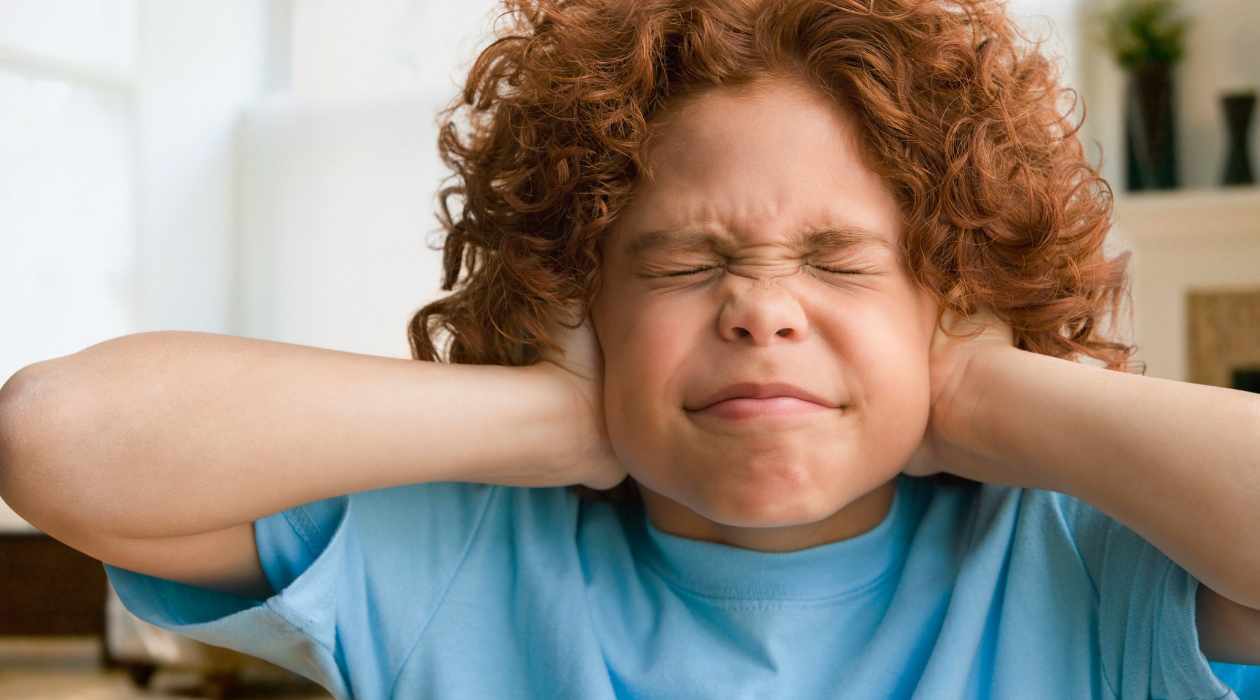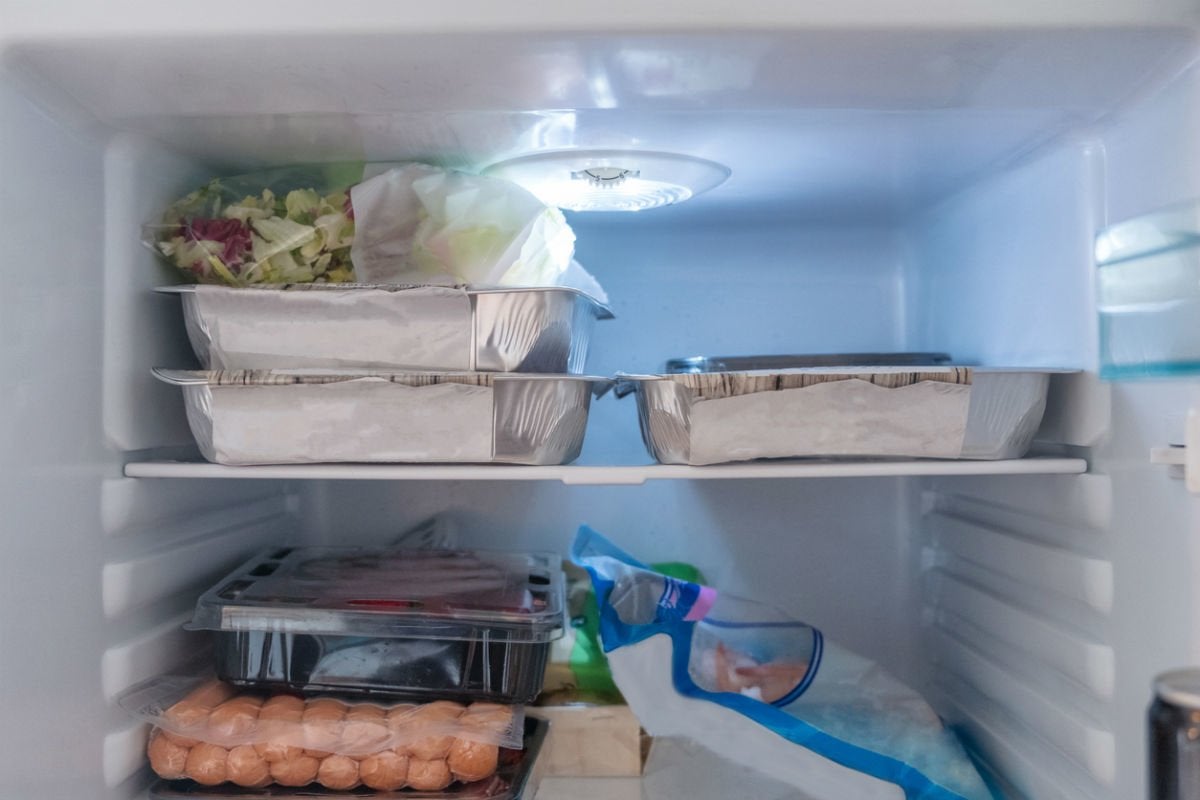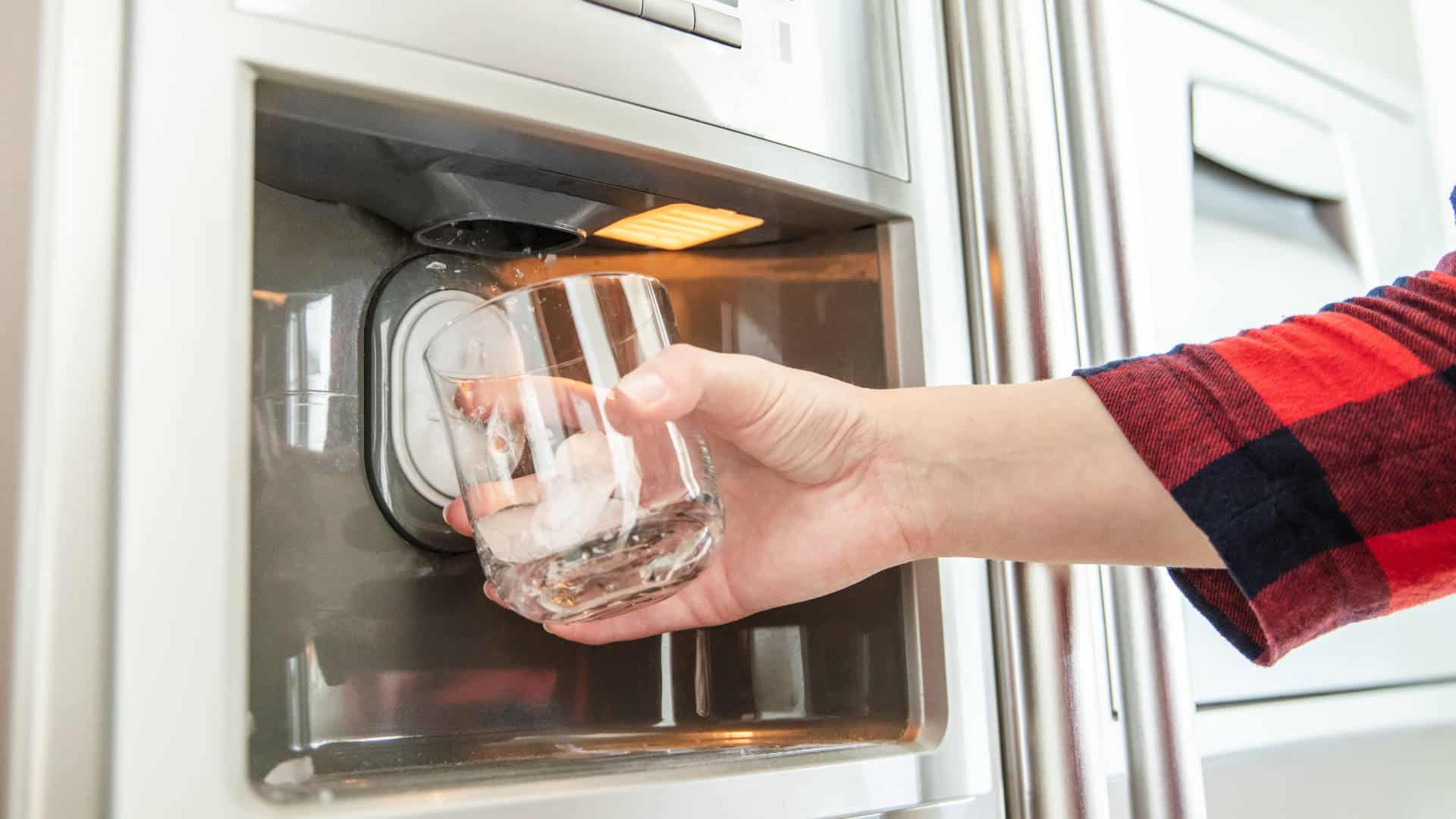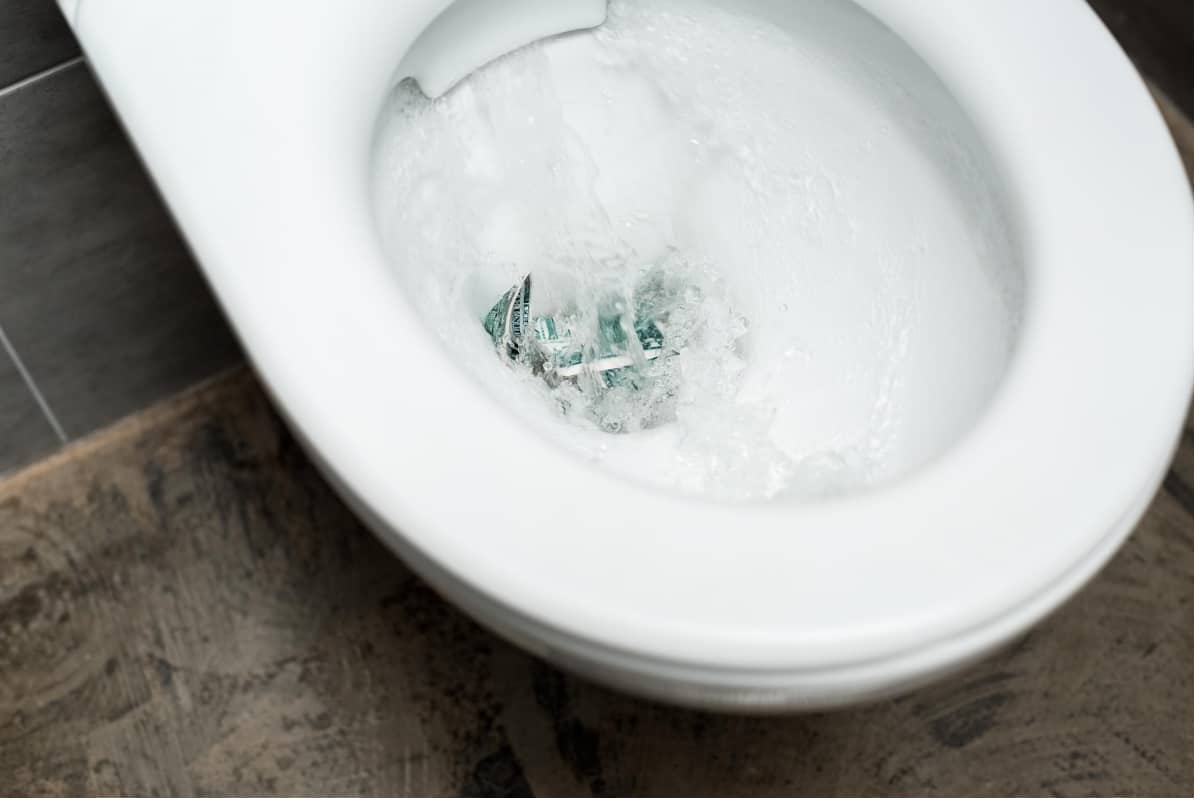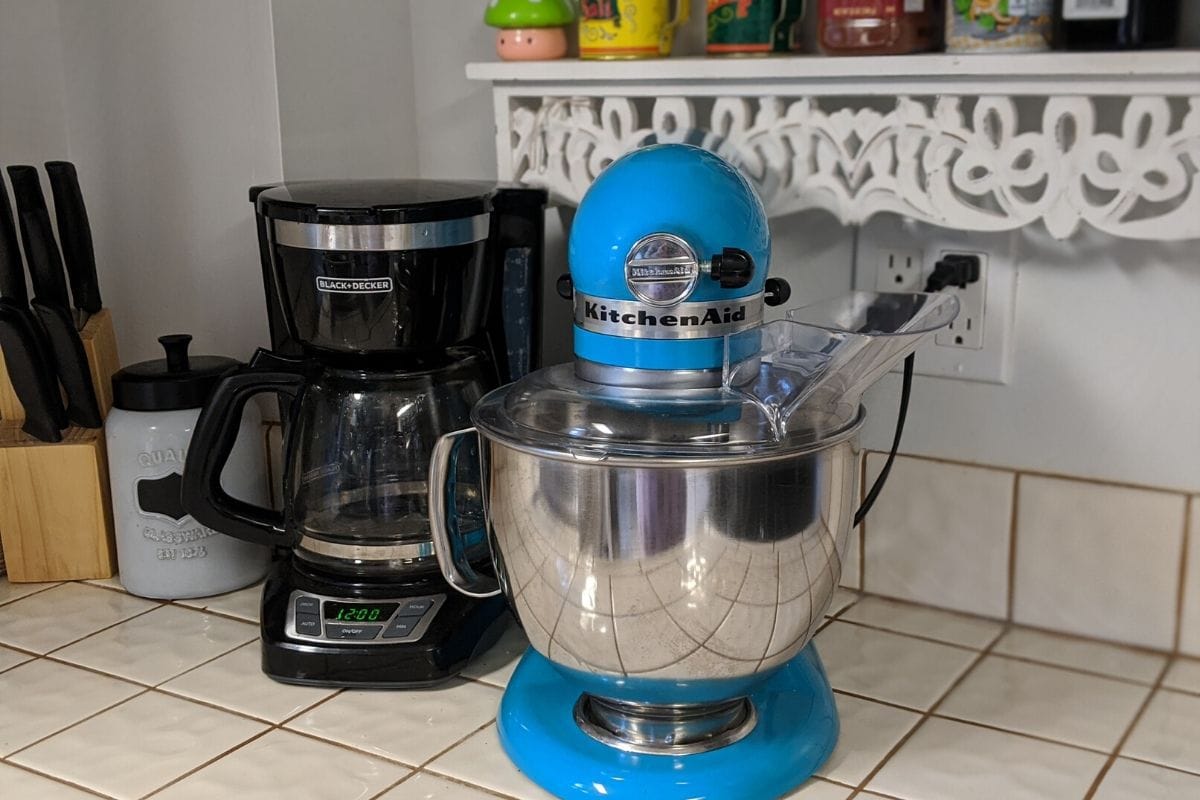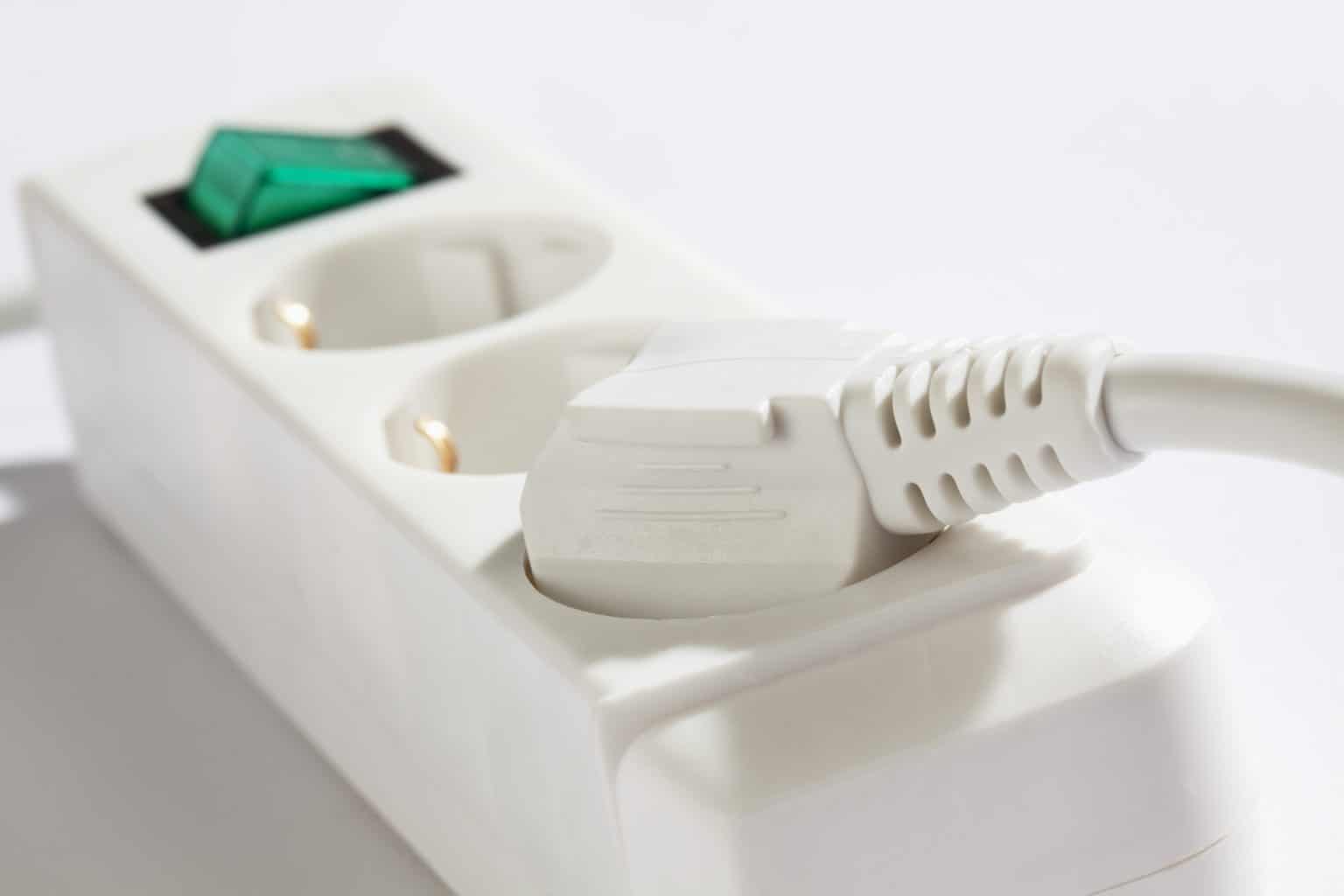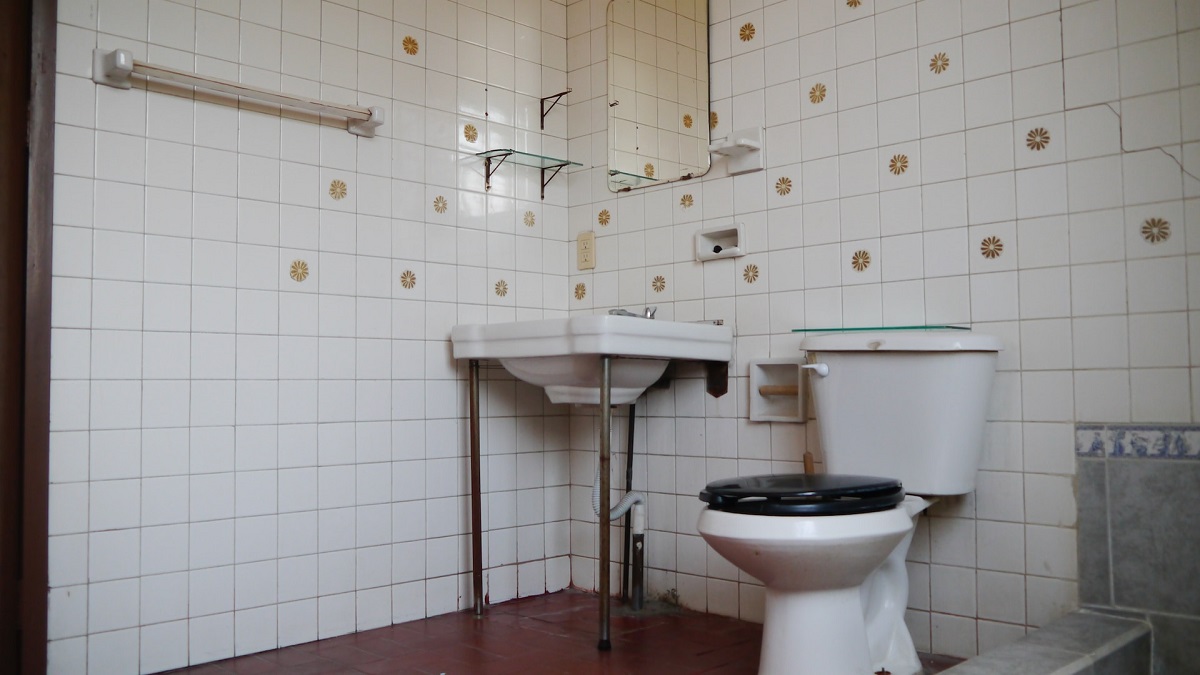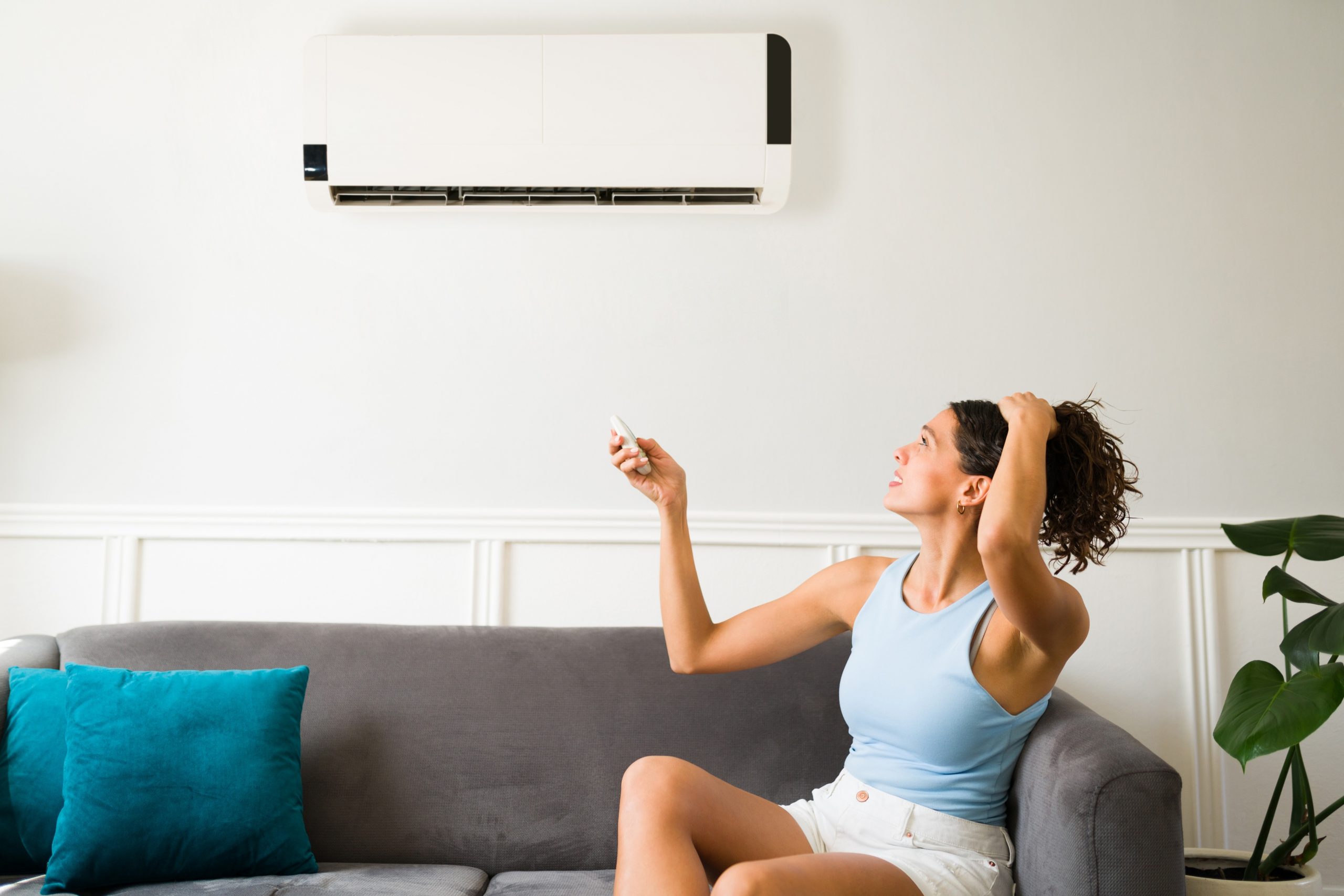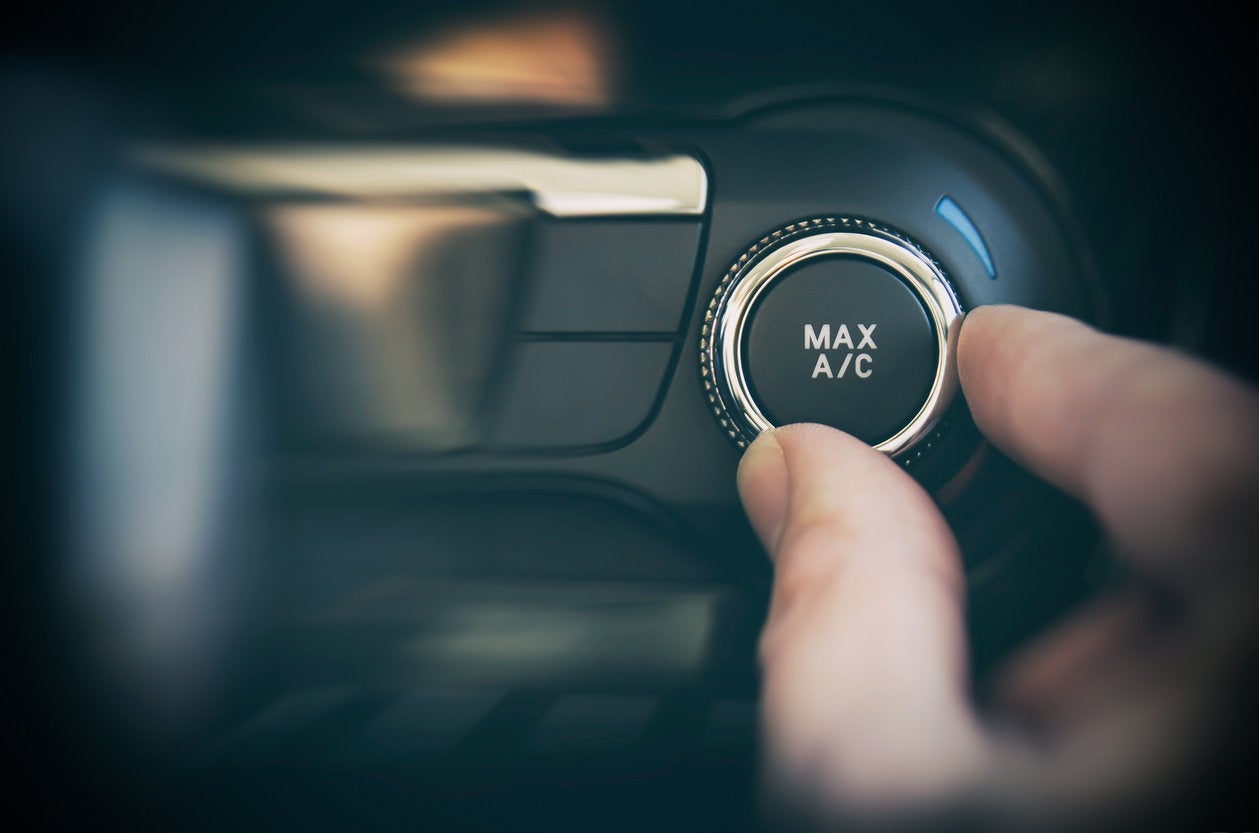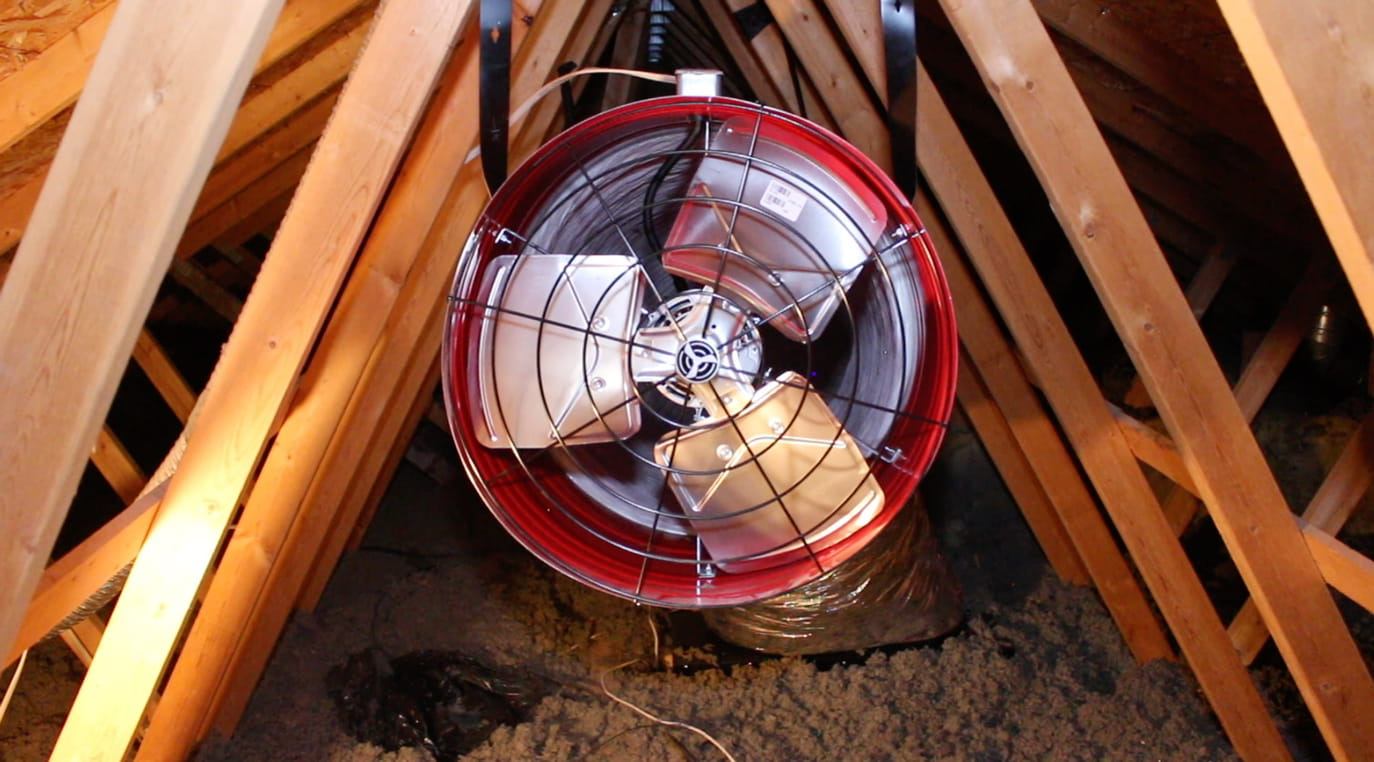Home>Home Maintenance>Why Is My Air Conditioning Unit Making Noise
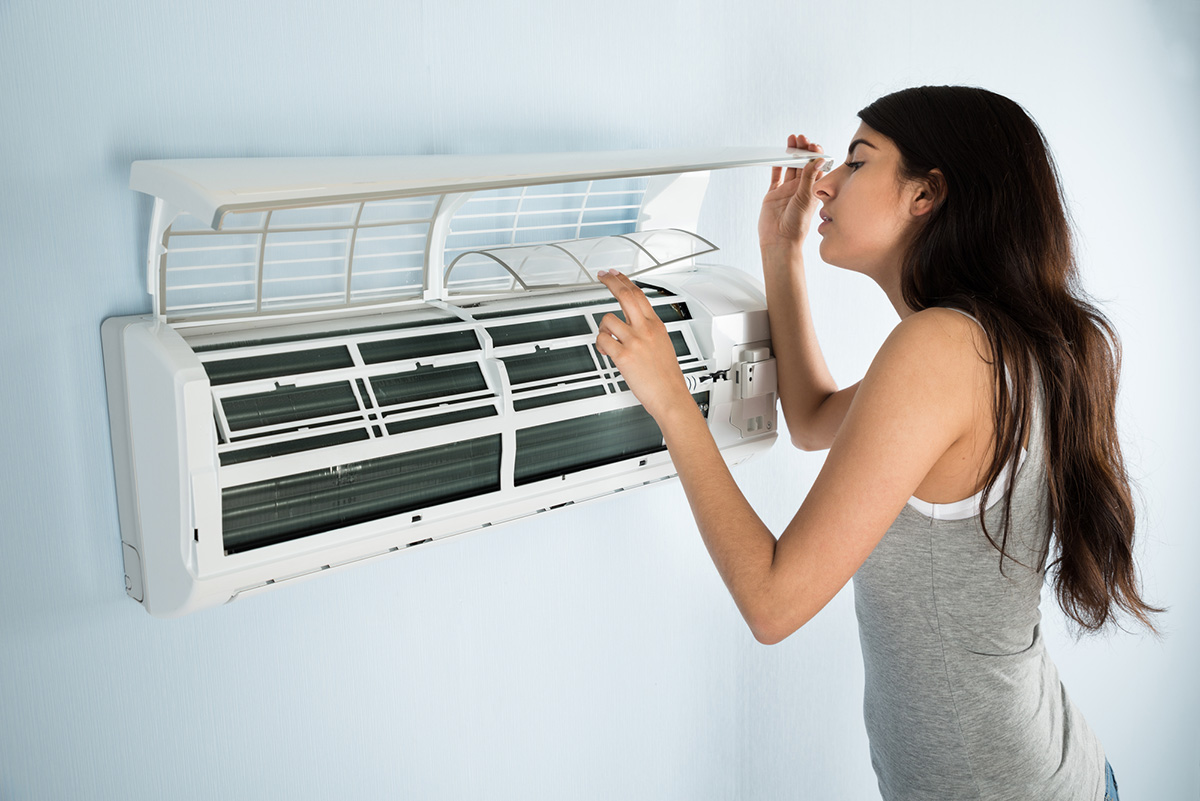

Home Maintenance
Why Is My Air Conditioning Unit Making Noise
Modified: August 26, 2024
Discover the reasons why your air conditioning unit is making noise and learn how to fix it with our expert home maintenance tips.
(Many of the links in this article redirect to a specific reviewed product. Your purchase of these products through affiliate links helps to generate commission for Storables.com, at no extra cost. Learn more)
Introduction
Having a properly functioning air conditioning unit is essential for maintaining a comfortable and cool indoor environment during the hot summer months. However, when your air conditioning unit starts making strange noises, it can be quite unsettling and worrisome. These noises can range from subtle hums and whirs to loud rattles and bangs, leaving you wondering what could be causing the disturbance.
Understanding the common causes of air conditioning unit noise is crucial in order to identify and address the issue effectively. In this article, we will explore the various reasons why your air conditioning unit may be making noise, and what steps you can take to resolve the problem.
Key Takeaways:
- Keep your air conditioning unit running quietly by regularly cleaning or replacing air filters, inspecting and tightening connections, and scheduling professional maintenance checks. Addressing noise issues promptly ensures a comfortable and peaceful indoor environment.
- Don’t ignore strange noises from your air conditioning unit. From fan and compressor issues to electrical problems and refrigerant leaks, timely repairs and professional assistance can restore quiet and efficient operation, keeping your home cool and comfortable.
Read more: Why Is My AC Making A Buzzing Noise
Common Causes of Air Conditioning Unit Noise
When your air conditioning unit starts making noise, it’s important to remember that it could be a symptom of an underlying issue that requires attention. Here are some of the most common causes of air conditioning unit noise:
1. Fan Problems:
– Loose or Damaged Fan Blades: Over time, the fan blades in your air conditioning unit can become loose or damaged, causing them to vibrate or produce a scraping sound. This can be due to wear and tear or improper maintenance.
– Debris in the Fan: Accumulation of dirt, leaves, or other debris in the fan can obstruct its movement and lead to unusual noises.
– Worn-out Fan Motor: If the bearings in the fan motor are worn out, it can result in a high-pitched squealing or grinding noise.
2. Compressor Issues:
– Faulty Compressor Motor: A malfunctioning compressor motor can produce loud noises, such as banging or clanking sounds, indicating an internal mechanical problem.
– Refrigerant Leaks: When there’s a refrigerant leak, the compressor may make a hissing sound due to the escaping gas. This requires immediate attention as it can lead to inefficient cooling and potential damage to the unit.
– Clogged Refrigerant Lines: Debris or dirt build-up in the refrigerant lines can cause a gurgling or bubbling noise as the refrigerant passes through, indicating a blockage that needs to be cleared.
3. Air Filter Problems:
– Dirty or Clogged Air Filters: If the air filters are not regularly cleaned or replaced, they can become clogged with dust and debris. This can restrict airflow and force the air conditioning unit to work harder, resulting in a buzzing or whistling noise.
4. Ductwork Issues:
– Loose or Detached Ducts: Improperly installed or damaged ductwork can create rattling or flapping noises when the air conditioning unit is in operation. This can disrupt the airflow and reduce the unit’s efficiency.
5. Vibration or Rattling Noises:
– Loose Panels or Components: Over time, the panels and components of the air conditioning unit can become loose, causing vibrating or rattling noises during operation.
– Unbalanced Internal Parts: If the internal components of the unit, such as the fan or motor, are not properly balanced, it can result in vibrations and rattling sounds.
6. Electrical Problems:
– Faulty Electrical Connections: Loose or damaged electrical connections can lead to intermittent buzzing or cracking noises. It’s important to have an electrician inspect and repair any electrical issues to prevent further damage or safety hazards.
– Malfunctioning Capacitor: A defective capacitor can cause a clicking or humming sound. This component is responsible for starting and running the motor, so if it’s malfunctioning, the unit may not operate properly.
7. Refrigerant Leaks:
– Hissing or Bubbling Sounds: A refrigerant leak can produce a hissing or bubbling sound near the unit. This is an indication of a significant issue that requires immediate attention from a professional technician.
8. Miscellaneous Causes:
– Thermostat Issues: Faulty or misaligned thermostats can cause the air conditioning unit to cycle on and off frequently, resulting in clicking or tapping noises.
– Expansion Valve Problems: A malfunctioning or clogged expansion valve can create a hissing or whistling noise due to irregular refrigerant flow.
– Defective or Worn-out Parts: Aging or faulty components within the air conditioning unit, such as bearings or belts, can cause grinding, squealing, or screeching sounds.
By identifying the specific cause of the noise, you can take appropriate steps to address the issue and prevent further damage to your air conditioning unit. It’s recommended to consult with a professional HVAC technician for a thorough diagnosis and repair.
Fan Problems
One of the common culprits behind noisy air conditioning units is fan problems. The fan plays a crucial role in circulating the cool air throughout your home. Here are some common fan-related issues that can cause noise:
– Loose or Damaged Fan Blades: Over time, the fan blades can become loose or even bent, causing them to scrape against other components of the unit. This can result in a loud, irritating noise. Loose or damaged fan blades can be caused by wear and tear, improper installation, or even physical obstruction.
– Debris in the Fan: If you have an outdoor air conditioning unit, it is exposed to the elements. Leaves, sticks, and other debris can find their way into the fan area and interfere with its rotation. As the fan spins, it can hit and push against this debris, causing a rattling or scraping noise.
– Worn-out Fan Motor: Just like any other mechanical component, the fan motor can wear out over time. This wear and tear can cause the motor to generate unusual noises, such as grinding, squeaking, or screeching sounds. A worn-out fan motor may need to be replaced by a professional technician.
It’s essential to address fan problems promptly to prevent further damage to your air conditioning unit. Here are some steps you can take:
1. Turn off the unit: Before inspecting or attempting any repair work, make sure to turn off the power supply to the air conditioning unit. This will ensure your safety and prevent any accidental injuries.
2. Visual inspection: Carefully examine the fan blades for signs of damage or looseness. If you notice any bent or damaged blades, it’s best to replace them. Additionally, check for any debris or obstructions stuck in the fan area. Clear away any debris using a brush or soft cloth.
3. Tighten loose components: If you suspect that the noise is coming from loose fan blades or other components, use a screwdriver or wrench to tighten them. Be careful not to overtighten, as it can cause stress on the blades or other parts.
4. Lubrication: Some fan motors may require lubrication to run smoothly. Consult your air conditioning unit’s manual to determine if lubrication is necessary. If so, use a lubricating oil recommended by the manufacturer and follow the instructions carefully.
If you’ve attempted these troubleshooting steps, but the noise persists, it’s advisable to seek professional help. A certified HVAC technician can diagnose the problem accurately and provide the necessary repairs or replacement parts.
Remember, regular maintenance and cleaning of your air conditioning unit can prevent fan-related issues. Make sure to schedule annual maintenance checks and keep the unit free from debris to ensure optimal performance and minimize noise.
Compressor Issues
The compressor is the heart of your air conditioning unit. It plays a vital role in pressurizing and circulating the refrigerant throughout the system. However, several issues with the compressor can lead to noisy operation. Here are the common compressor-related problems that can cause noise:
– Faulty Compressor Motor: The compressor motor is responsible for driving the refrigerant through the system. If the motor is malfunctioning or damaged, it can produce loud banging or clanking sounds. This indicates an internal mechanical problem within the compressor.
– Refrigerant Leaks: A refrigerant leak is a significant issue that not only affects the cooling efficiency of your air conditioning unit but also causes noise. When there’s a leak in the refrigerant lines, you may hear a hissing sound as the refrigerant escapes. It’s crucial to address refrigerant leaks promptly, as they can lead to a complete breakdown of the unit if left unattended.
– Clogged Refrigerant Lines: Over time, the refrigerant lines can become clogged with debris, dirt, or even ice buildup. This blocks the smooth flow of refrigerant and can cause gurgling or bubbling noises as the refrigerant tries to pass through the restricted area. Clogged lines can also lead to reduced cooling performance and increased energy consumption.
If you suspect that your air conditioning unit has compressor issues causing noise, here’s what you can do:
1. Turn off the unit: Before inspecting or attempting any repairs on the compressor, always ensure that the power supply is turned off to prevent any accidents or injuries.
2. Check for refrigerant leaks: Inspect the area around the compressor and the refrigerant lines for any signs of leaks, such as oil spots, stains, or the distinct hissing sound. If you suspect a refrigerant leak, it’s crucial to contact a professional HVAC technician immediately to locate and repair the leak.
3. Clear any clogs: If you suspect that clogged refrigerant lines are causing the noise, it’s best to leave the cleaning and unclogging process to a professional technician. They have the proper tools and expertise to safely remove debris and restore the proper flow of refrigerant.
4. Professional diagnosis and repair: If you’ve inspected the compressor and suspect a fault in the motor, it’s advisable to seek professional help. A certified HVAC technician can accurately diagnose the issue, determine whether the motor needs repair or replacement, and perform the necessary repairs.
Regular maintenance and timely repairs of your air conditioning unit can prevent compressor-related noise issues. Make sure to schedule annual maintenance checks to ensure the optimal performance of your unit and extend its lifespan.
Remember, working on the compressor requires professional expertise, so it’s best to leave the repairs and maintenance to qualified technicians to ensure your safety and the integrity of your air conditioning unit.
Air Filter Problems
Air filters play a crucial role in maintaining the air quality and efficiency of your air conditioning unit. They remove dust, pollen, and other particles from the air before it enters the system. However, when air filters become dirty or clogged, it can hinder the airflow and lead to noise issues. Here’s a closer look at air filter problems and their impact on your air conditioning unit:
– Dirty or Clogged Air Filters: Over time, air filters collect dust, dirt, pet dander, and other particles from the air. If not cleaned or replaced regularly, they can become clogged, restricting the airflow. As a result, your air conditioning unit is forced to work harder to push air through the system, leading to a buzzing or whistling noise. Additionally, a dirty filter can cause a decrease in cooling efficiency and increased energy consumption.
To address air filter problems and prevent noise-related issues, follow these steps:
1. Check the air filters: Locate the air filter compartment in your air conditioning unit. It is typically found on the return air duct, near the air handler or furnace. Remove the filter and inspect it for any signs of dirt or debris buildup. If the filter appears dirty or clogged, it needs to be cleaned or replaced.
2. Clean reusable filters: If you have reusable filters, follow the manufacturer’s instructions to clean them properly. This usually involves rinsing the filter with water and allowing it to completely dry before reinstalling it. Make sure to clean the filter regularly to prevent excessive dirt buildup.
3. Replace disposable filters: Disposable filters should be replaced on a regular basis depending on the manufacturer’s recommendation. This is usually every one to three months, but it may vary based on factors like the air quality in your area or the presence of pets or allergies. Replace the old filter with a new one of the same size and type.
4. Maintain regular filter cleaning/replacement: To prevent future noise issues and maintain the efficiency of your air conditioning unit, establish a regular schedule for filter cleaning or replacement. Mark the date on your calendar or set reminders to ensure you don’t forget this important maintenance task.
By keeping your air filters clean and properly maintained, you can improve the air quality in your home and prevent noise-related problems. Additionally, clean filters help promote airflow, reduce strain on the unit, and increase energy efficiency.
Remember, if you’re unsure about the type of air filter or how to clean or replace it, consult the manufacturer’s instructions or seek guidance from a professional HVAC technician. They can provide expert advice and ensure that you’re taking the right steps to maintain a noise-free and efficient air conditioning unit.
Ductwork Issues
The ductwork in your home plays a critical role in distributing the cooled air from your air conditioning unit throughout various rooms. However, when the ductwork is compromised or faulty, it can lead to noise issues and reduced efficiency. One common ductwork problem that can cause noise is loose or detached ducts. Here is a closer look at this issue and how to address it:
– Loose or Detached Ducts: Over time, the connections between the duct sections can become loose due to temperature fluctuations, vibrations, or aging. Additionally, poorly installed ducts may not have been properly connected in the first place. When the ducts are loose or detached, the airflow passing through them can create rattling, flapping, or banging noises. These noises can be especially noticeable when the air conditioning unit is running.
To identify and address loose or detached ducts, follow these steps:
1. Visual inspection: Begin by visually inspecting the visible sections of the ductwork, such as in the basement, attic, or crawl space. Look for any obvious signs of disconnected or loose ducts, such as gaps, disconnected joints, or misaligned sections.
2. Listen for airflow noises: While your air conditioning unit is running, listen for any unusual airflow noises coming from the ducts. Rattling, flapping, or banging sounds can indicate loose or detached ducts.
3. Gently shake the ducts: If you suspect a loose duct connection, carefully reach the accessible sections of the ductwork and gently shake them. If you hear any rattling or movement, it is a strong indication of loose or detached ducts.
4. Secure loose connections: For ducts with visible gaps or loose connections, you can use metal duct tape or metal band clamps to secure them. Make sure to clean the surfaces before applying the tape or clamps for better adhesion. Avoid using standard adhesive tape, as it may deteriorate over time.
5. Seek professional help: If you are unable to locate or access the loose or detached ducts, or if the issue seems more complex, it’s best to seek professional assistance. A qualified HVAC technician will have the expertise and tools to identify and repair the ductwork issues accurately.
Regular maintenance of your ductwork can prevent loose or detached ducts from becoming a recurring problem. Additionally, proper installation and sealing of the ducts during construction or renovations can reduce the likelihood of future issues.
By addressing loose or detached ducts, you can improve the efficiency of your air conditioning unit, reduce noise, and enhance overall comfort in your home. Regularly inspecting your ductwork and promptly addressing any issues will help ensure optimal performance of your air conditioning system.
Regular maintenance and cleaning of your air conditioning unit can help reduce noise. Check for loose parts, clean the fan blades, and replace any worn out components to keep your unit running quietly.
Vibration or Rattling Noises
If your air conditioning unit is producing vibration or rattling noises, it can be quite disturbing and indicate underlying issues. These noises are often a result of loose components or unbalanced internal parts within the unit. Let’s explore the potential causes and solutions for these vibration-related problems:
– Loose Panels or Components: Over time, the panels and various components of the air conditioning unit can become loose due to constant vibrations and normal wear and tear. Loose panels or components can create rattling or vibrating noises when the unit is in operation.
To address loose panels or components, follow these steps:
1. Turn off the unit: Before inspecting or attempting any repairs, ensure that the power supply to the air conditioning unit is turned off to prevent any accidents or injuries.
2. Visual inspection: Carefully inspect the exterior of the unit for any visible signs of loose or rattling panels. Gently tap on the panels to determine if any are loose or require tightening. Additionally, check the fan blades, motor mounts, and other internal components for any signs of looseness.
3. Tighten loose components: Using a screwdriver or wrench, tighten any loose panels, fan blades, or other components that you have identified. Be cautious not to overtighten, as this could cause damage.
– Unbalanced Internal Parts: Sometimes, the internal parts of the air conditioning unit can become unbalanced. This can be due to normal wear and tear, faulty installation, or even manufacturing defects. When internal parts are unbalanced, it can result in vibrations and rattling noises during operation.
To resolve unbalanced internal parts, it’s recommended to seek professional assistance from an HVAC technician. They can:
1. Conduct a thorough inspection: An HVAC technician will inspect the internal components of the air conditioning unit to identify any unbalanced parts causing vibrations or rattling noises.
2. Perform necessary adjustments: Based on their assessment, the technician will make proper adjustments to balance the internal parts. This could involve tightening or realigning specific components, such as fan blades, motors, or the compressor.
3. Consider professional maintenance: Regular maintenance performed by a certified technician can help prevent unbalanced internal parts from becoming a recurring issue. During maintenance visits, the technician will check for any signs of imbalance and make the necessary adjustments to ensure optimal performance and reduce noise levels.
By addressing loose panels or components and resolving unbalanced internal parts, you can reduce vibrations and rattling noises in your air conditioning unit. This will not only improve the comfort in your home but also prolong the lifespan of the unit.
Regular maintenance and inspections are key to preventing and addressing these issues. It’s recommended to schedule annual maintenance checks with a certified HVAC technician to ensure the proper functioning and noise-free operation of your air conditioning unit.
Electrical Problems
Electrical problems can also be a common source of noise in air conditioning units. Faulty electrical connections and malfunctioning capacitors are two key electrical issues that can cause noise disturbances. Let’s take a closer look at each problem and how to address them:
– Faulty Electrical Connections: Over time, electrical connections within the air conditioning unit can become loose, corroded, or damaged. Loose connections can cause electrical arcing, resulting in buzzing, cracking, or popping sounds. Corroded or damaged connections can create resistance, leading to electrical noise.
To address faulty electrical connections, follow these steps:
1. Turn off the unit: Before inspecting or attempting any electrical repairs, ensure that the power supply to the air conditioning unit is turned off for your safety.
2. Visual inspection: Carefully examine the electrical connections within the unit for any signs of looseness, corrosion, or damage. Inspect wires, terminals, and connectors, paying close attention to any burnt or discolored areas.
3. Tighten or replace connections: If you identify any loose or corroded connections, use a screwdriver or pliers to securely tighten them. If the connections are damaged, it’s recommended to replace them with new connectors and wires.
– Malfunctioning Capacitor: The capacitor is a crucial component that stores and releases electrical energy to start and run the motor in the air conditioning unit. When a capacitor malfunctions, it can cause clicking, humming, or buzzing noises.
To address a malfunctioning capacitor, it is recommended to seek professional assistance from an HVAC technician. They can:
1. Capacitor testing: An HVAC technician will use specialized equipment to test the capacitance and functionality of the capacitor. They will determine if the capacitor needs to be repaired or replaced.
2. Capacitor replacement: If the capacitor is found to be faulty, the technician will replace it with a new one that matches the specifications of your unit. They will ensure proper installation and wiring.
It’s important to note that electrical repairs within an air conditioning unit can be complex and potentially dangerous if not handled by a professional. To ensure your safety and prevent further damage to the unit, it is always recommended to seek assistance from a qualified HVAC technician.
Regular maintenance, including inspections of electrical connections and capacitors, can help prevent these electrical problems from occurring. It’s advisable to schedule annual maintenance checks with an HVAC technician to ensure the electrical components of your air conditioning unit are in good condition and functioning properly.
By addressing faulty electrical connections and repairing or replacing malfunctioning capacitors, you can reduce the noise caused by electrical issues and ensure the safe and efficient operation of your air conditioning unit.
Refrigerant Leaks
Refrigerant leaks are a serious issue that can not only impact the performance and efficiency of your air conditioning unit but also cause noise disturbances. When refrigerant leaks occur, you may hear hissing or bubbling sounds coming from the unit. Let’s take a closer look at refrigerant leaks and how to address them:
– Hissing or Bubbling Sounds: When there’s a refrigerant leak in your air conditioning unit, you may notice a distinct hissing or bubbling sound. These noises are caused by the refrigerant escaping from the system. Refrigerant leaks are typically indicated by a decrease in cooling performance, ice buildup on the evaporator coil, or a noticeable decline in airflow.
To address refrigerant leaks, follow these steps:
1. Turn off the unit: If you suspect a refrigerant leak, it’s important to turn off the air conditioning unit to prevent further damage and to ensure your safety.
2. Contact a professional technician: Refrigerant leaks should be addressed by a qualified HVAC technician who has the expertise and equipment to handle the issue safely. They will be able to accurately locate the leak using specialized tools and determine the appropriate course of action.
3. Repair or replace the affected component: Once the technician locates the leak, they will evaluate the extent of the damage and recommend the necessary repairs. In some cases, the component or tubing with the leak may need to be repaired or replaced. The technician will ensure the proper sealing and recharge the system with the correct amount of refrigerant.
Refrigerant leaks should never be ignored, as they can lead to reduced cooling capacity, inefficient operation, and increased energy consumption. In addition to the noise disturbances, refrigerant leaks can pose health and environmental risks, as refrigerants are harmful substances that should not be released into the atmosphere.
Preventing refrigerant leaks starts with proper installation and regular maintenance of your air conditioning unit. Routine maintenance checks by a professional technician can help detect and address any potential leaks before they become significant issues.
If you suspect a refrigerant leak or notice any hissing or bubbling sounds coming from your air conditioning unit, it’s crucial to contact a professional technician as soon as possible. They will be able to diagnose and repair the leak, restoring the optimal performance and efficiency of your unit.
Read more: Why Is My HVAC Making Noise
Miscellaneous Causes
Aside from the previously mentioned causes, there are a few miscellaneous factors that can contribute to noise in your air conditioning unit. These include thermostat issues, expansion valve problems, and defective or worn-out parts. Let’s take a closer look at each of these causes:
– Thermostat Issues: The thermostat is responsible for regulating the temperature and controlling the operation of your air conditioning unit. However, if the thermostat is malfunctioning or misaligned, it can cause the unit to cycle on and off frequently, resulting in clicking or tapping noises. Additionally, wiring issues or faulty sensors can lead to incorrect temperature readings or problems with the thermostat’s communication with the unit.
To address thermostat issues, follow these steps:
1. Check the thermostat settings: Ensure that the thermostat is set to the desired temperature and cooling mode. Verify that the fan is set to the appropriate setting (auto or on).
2. Replace the batteries: If your thermostat is battery-operated, it’s essential to check and replace the batteries if necessary. Low battery levels can cause the thermostat to malfunction or display inaccurate readings.
3. Calibrate or replace the thermostat: If you suspect calibration issues or other malfunctions, consult the manufacturer’s instructions to recalibrate the thermostat or consider replacing it altogether.
– Expansion Valve Problems: The expansion valve is responsible for regulating the flow of refrigerant into the evaporator coil. If the expansion valve becomes faulty or clogged, irregular refrigerant flow can occur, leading to hissing or whistling noises. This can also result in cooling inefficiencies and reduced performance.
To address expansion valve problems, it is recommended to seek assistance from an HVAC technician. They can diagnose the issue accurately and determine whether the expansion valve needs cleaning, repair, or replacement.
– Defective or Worn-Out Parts: Over time, various components within the air conditioning unit can become defective or worn out. For example, bearings, belts, or other mechanical parts may deteriorate, resulting in grinding, squealing, or screeching sounds. If your unit is older or has not been adequately maintained, worn-out parts may be a contributing factor to the noise issues.
To address defective or worn-out parts, consult a professional HVAC technician. They can inspect the unit thoroughly, identify any malfunctioning components, and recommend appropriate repairs or replacements.
Regular maintenance and inspections are crucial to prevent and address these miscellaneous causes of noise in your air conditioning unit. Scheduling annual maintenance checks with a certified technician will help keep your unit in optimal condition and reduce the occurrence of these issues.
If you’re experiencing noise-related problems in your air conditioning unit caused by thermostat issues, expansion valve problems, or defective parts, it’s best to seek professional assistance. An HVAC technician can diagnose the specific issue and implement the necessary repairs or replacements to restore the proper functioning of your unit.
Conclusion
Noisy air conditioning units can be a source of frustration and discomfort. Luckily, many of the common causes of air conditioning unit noise can be addressed with proper maintenance and timely repairs. By understanding the potential issues and taking proactive steps, you can restore the quiet and efficient operation of your air conditioning system.
From fan problems to compressor issues, air filter problems to ductwork issues, vibration or rattling noises to electrical problems, refrigerant leaks, and miscellaneous causes, each noise source presents its own unique challenges. However, by following the troubleshooting steps provided in this article, you can identify the underlying problems and take appropriate actions.
Regular maintenance, including cleaning or replacing air filters, inspecting and tightening connections, and scheduling professional maintenance checks, is key to preventing and addressing noise-related issues in your air conditioning unit. It’s also essential to address any issues promptly to avoid further damage and potential breakdowns.
If you’re unsure about the specific cause of the noise or if you’re uncomfortable conducting the repairs yourself, it’s always recommended to seek assistance from a qualified HVAC technician. They have the expertise, tools, and resources to accurately diagnose the issue and provide the necessary repairs or replacements.
Remember, a well-maintained and properly functioning air conditioning unit not only provides a comfortable indoor environment but also improves energy efficiency and lowers utility costs. By addressing and resolving the noise issues, you can enjoy the cool air without the disturbance of unnecessary sounds.
By taking proactive steps, conducting regular maintenance, and addressing noise-related problems promptly, you can ensure that your air conditioning unit operates quietly and efficiently, keeping your home comfortable and cool for years to come.
Frequently Asked Questions about Why Is My Air Conditioning Unit Making Noise
Was this page helpful?
At Storables.com, we guarantee accurate and reliable information. Our content, validated by Expert Board Contributors, is crafted following stringent Editorial Policies. We're committed to providing you with well-researched, expert-backed insights for all your informational needs.
